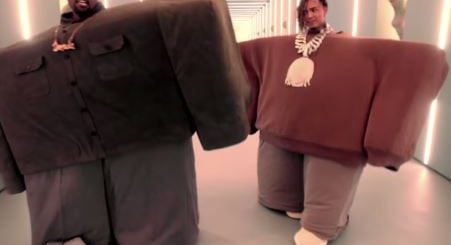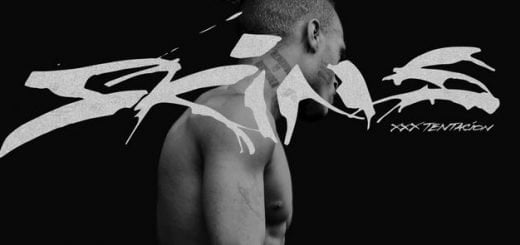“Last Call” by Kanye West
Apparently one of the reasons this song is called “Last Call” is because it is the final track on the playlist of “The College Dropout”. And based on the chorus, Kanye is using the opportunity of this tune to give a shoutout to Roc-A-Fella Records whom, understandably, he was a lot more appreciative of during the early goings of his career, i.e. around the time this track was dropped.
Also, as indicated in the chorus this is the “last call” for people in the house to score some alcohol and ‘get their as*es up off the wall’, i.e. embrace the spirit of partying. But to clarify, what’s actually being celebrated is Yeezus’s come-up.
Verse 1
Into the first verse, the reason Kanye goes about mentioning Roc-A-Fella so much is in recognition of the fact that this is the label that put him on. But beyond that, we all know that Yeezy is cocky and by the looks of things was so even back in those days. But this was around the time he first came out, before proving to be one of the richest men on Earth.
So such braggadocious lyrics in this regard can be interpreted as the vocalist being confident that he will make it bigger than what he had already achieved up until this point, that basically being a major record deal on top of a couple of hits.
Verse 2
Then, Kanye commences the second verse by noting how he was previously overlooked. Indeed in the grand scheme of things, West is just as accomplished as a producer as he is for his vocal contributions. However, earlier on, before making it big, he was known almost exclusively as a producer.
So he hints at that in this passage also, how many people were doubtful he would ever make it as a rapper. And what Yeezy is saying is that his success as a rapper, most simply put, is attributable to the fact that he never gave up. He kept on striving even when it appeared the odds were stacked against him.
The Outro of “Last Call”
Meanwhile, the outro to “Last Call” is actually longer than the song itself. This section of the track basically consists of Kanye enlightening us, in detail, of some of the struggles he went through before finally being signed by Roc-A-Fella.
As alluded to earlier, he first became associated with the label due to his production skills. One day Kanye let the company’s A&R hear one of his rhymes, and dude was actually interested until he realized it was actually West spitting. So the implication, as alluded to earlier, is that there was a time when Kanye simply wasn’t taken seriously as a rapper.
So as West continues to elaborate, it is revealed that it was actually No ID who first made Roc-A-Fella seriously consider Kanye as a rapper. No I.D. is a lesser-known hip-hop producer who, like Yeezy, is from Chicago. But even more importantly as far as West’s personal history goes, he was Kanye’s musical “mentor”, as noted in the lyrics.
Either way, it was Yeezus’s skills as a producer that got his foot in the door. And the vocalist goes on to namedrop some of the tracks he produced for Roc-A-Fella, including a Roc La Familia classic entitled “This Can’t Be Life”. And it was also while working on that song that he first got acquainted with Jay-Z.
Things still moving slowly
Yet and still things were moving slow for Kanye on multiple fronts. However, he was able to make a bit of dough via some tracks he produced for another label, Cash Money Records. And it was that income that Yeezus used to move to the East Coast or more specifically Newark, New Jersey, with Roc-A-Fella being located in relatively nearby Manhattan.
At this juncture, Kanye was working closely with Beanie Sigel, another artist signed to Roc-A-Fella who was Jay-Z’s top artist at the time. Through this connection he managed to get closer to Jigga and other important figures at Roc-A-Fella, including co-founder Dame Dash.
Now keep in mind that Jay-Z is a rapper who is known to make up lyrics on-the-fly. And being impressed by some of Kanye’s beats, he jumps on them instantly. Also remember that this was before West himself was famous. So Kanye was in awe directly interacting with the likes of Jigga and co. But still, the Yeezy era had not yet arrived, even though Kanye was able to produce his first hit, 2001’s “Izzo”, via Jay-Z.
The Talib Kweli shoutout
The vocalist then goes on to give a special shoutout to Talib Kweli, a 1990s’ era rapper from New York City (who he also namedrops in the second verse). And that’s because according to Kanye, Talib was the first one to really take him seriously in a rap sense, as in allow Yeezus “to go on tour with him”.
The Struggle Continues
But as far as industry figures go, they were still only interested in Kanye as a producer and furthermore, now that he made a name for himself in that regard, wanted him to create tracks for them similar to what he did for Jay-Z.
West was still shopping himself as a rapper though and by this time had even put together “Jesus Walks“, one of his quintessential hits. He played that outstanding piece for some industry figures, but to make a long story short they still didn’t sign him. And the vocalist recognizes that the reason was because he didn’t fit the traditional, street-based rap profile.
Well actually, even though West still hadn’t convinced most industry heads that he was a legitimate rapper despite putting together a couple of songs they were diggin’, he did get an offer from Capitol Records, one of the major players in the game. And Kanye was down to sign, even making the appropriate arrangements to do so. But then, unexpectedly, “Capitol pulled on the deal”.
Success at last!
The aforementioned disappointment is what made him once again try to get put on to Roc-A-Fella. It is on that note the monologue concludes, followed by the audience once again being instructed to “raise your glass”. And this time around, it becomes more obvious that said directive is being relayed in relation to Kanye’s come-up.
Or as presented, it comes right after he called someone associated with Roc-A-Fella, following up to see if he had been able to work out a deal for Yeezus. The vocalist never reveals what the answer to that question was, rather instructing us directly thereafter to “raise your glass”. So that’s a poetic way of him saying that after making that call, the rest is history.
And indeed, it’s almost impossible to imagine what would have happened if Kanye had gotten down with Capitol, which isn’t an actual hip-hop label, as opposed to Roc-A-Fella and forming the relationship he did with Jay-Z.
And again, when this song came out, Kanye wasn’t nearly as famous as he would become in later years. But he already dropped a couple of hits and made a name for himself in the world of rap music. Moreover, he was not only signed by Roc-A-Fella but also was an artist that they actually went on to promote.
So on one hand yes, he is celebrating his established success. But beyond that, it is also pretty clear that Mr. West, being who he is, was already convinced that even greater accomplishments were on the way.

The Production of “Last Call”
This track was produced by Kanye and Evidence, the latter of whom is down with a somewhat-underground rap crew known as the Dilated Peoples. And there has been some controversy in that regard due to some statements which Evidence, the actual originator of the instrumental, has made.
“Last Call” interpolates a track called “Mr. Rockefeller” (1976) by Bette Midler. Well as you likely already know, Jay-Z is the originator of the “Roc-A-Fella” hip-hop brand, i.e. the artist who “Rockefeller” is primarily attributed to. Accordingly, Evidence gave the instrumental to Kanye with the instruction that he should pass it on to Jigga.
According to an interview Evidence gave in 2014, Jay-Z opted out of using it (on “The Black Album” (2003), which at the time was being advertised as Jigga’s retirement project). Moreover they apparently were not authorized to use “Mr. Rockefeller” or one other of the other samples, and therefore Kanye reworked the instrumental, thus earning himself co-production credit. And everything was apparently all good between him and the other producer.
However, in another interview in 2019, Evidence rather suggested that Kanye never passed the instrumental onto Jay-Z and instead, upon hearing it, more or less instantly jacked it for himself. Also unlike the previous statements he made, where he called Yeezy “a musicologist” who “really took [the instrumental] to the next level”, in 2018 Evidence recanted by stating that all Kanye did was “put the just-to-get-by drums on top of my beat”. So if nothing else, it can be gathered that Evidence doesn’t regard West as highly as he did in the past.

Writing Credits
Kanye and Evidence are also credited as co-writers of “Last Call”, as are the following:
- Ken Lewis
- The World Famous Tony Williams.
Tony Williams is actually Yeezy’s cousin. As a singer, Williams contributed heavily to “The College Dropout”, i.e. the album that this track is derived from. To note, he and Ken Lewis also officially contributed additional vocals to this song. John Legend and Jay-Z also contributed vocals to this song. Jiga actually hold down the song’s intro.
More Facts
This track is of course a product of Roc-A-Fella Records. This is the label Jay-Z, who gave Kanye his big break into the music industry, co-founded.
Relatedly, “The College Dropout”, which was also backed by Def Jam Records and released on 10 February 2004, is the first studio album in West’s discography.
There are way too many people, brands, songs, etc. namedropped in “Last Call” for us to mention here. But as far as fellow musicians go, Kanye shouts out, in order:
- Digital Underground
- Tupac
- Sean Paul
- A Tribe Called Quest
- Freeway
- Mos Def
- Talib Kweli
- Jay-Z
- Bun B
- Dame Dash (who isn’t actually a rapper)
- P. Diddy
- Russell Simmons
- Beanie Sigel
- Just Blaze
- No ID
- D-Dot
- Harold Melvin (1939-1997)
- Dr. Dre
- Cam’ron
Kanye did get around to subliminally dissing the industry heads who turned their backs on him on his 2005 track “Diamonds from Sierra Leone“.
“Last Call”, i.e. the song with extended outro/monologue included, weighs in at approximately 12 minutes and 40 seconds in length.








